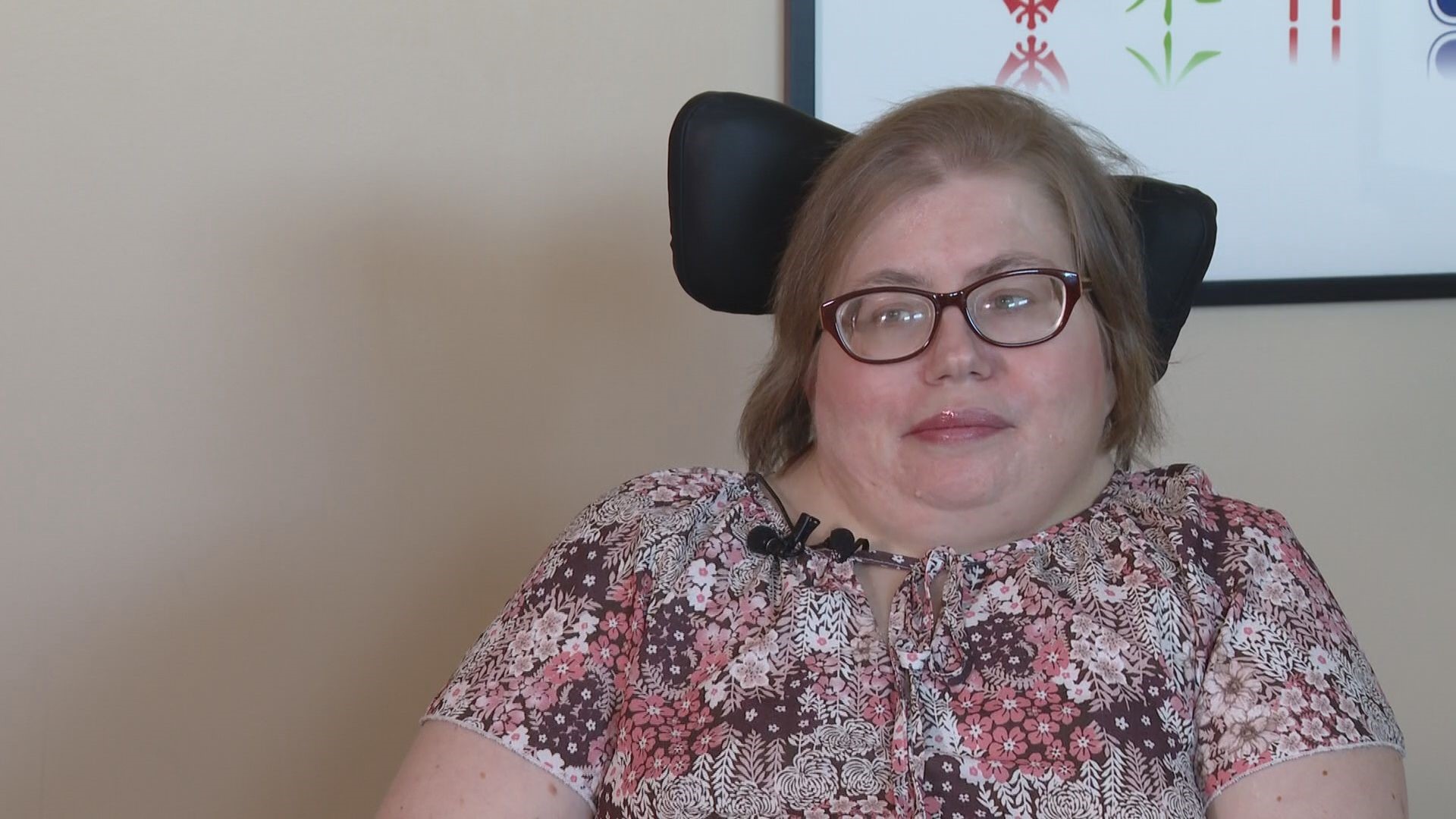GRAND RAPIDS, Michigan — Katie Oberst has dreamt of visiting Paris since she was a child.
"I love the language, I love the art history and history in general," said Oberst. "There have been a lot of great books that have come out of Parisian writers: Simone de Beauvoir, Victor Hugo. Amazing. And I love them all."
She never thought actually visiting the City of Lights was possible. Oberst is a paraplegic. She had open heart surgery as a baby, but something went wrong and it left her paralyzed. Among other health issues in recent years, she recently entered into palliative care at 38 years old.
"I have had a difficult life," said Oberst. "I never really thought it would be much of a possibility because Europe is not totally handicap accessible like the U.S. is."
However, Sunday, April 21, Oberst and her family took off in a plane for Paris, France.
She worked with her team at Corewell Health Rehabilitation and Nursing, building up her strength for the trip. She made sure she was healthy enough to travel, despite a couple stints in the intensive care unit. Her family found an organization called Wheeled World, which helps people who use wheelchairs travel. They created a six-day vacation to Paris for her.
"Each time I saw her, there was a new change and a new just focus on what mattered to her," said Dr. Amy Sanborn with Corewell Health. "And this digging into doing all of her French lessons, talking about all the things that she was going to experience. It's really motivating for her and then for us."
Oberst called herself "determined" and "stubborn," as she prepared to go to Paris. She has been learning French for a few years.
Palliative care is a focus on quality of life for people with life-limiting illnesses.
"It fulfills that reason why I went into medicine and it makes me a little emotional to talk about," said Sanborn talking about Oberst's trip. "I would hope that this will be a catalyst for other people and showing that we do have a way to do this."
There is a risk for infection, but Oberst said the benefits outweigh the risks.
"I think it will be potentially life-changing because I will gain some new perspective, I think, on the world and my view of the world," said Oberst. "I think it'll be like a storybook."
RELATED VIDEO: Grand Rapids hospital first in Midwest to use new procedure to treat AFib
►Make it easy to keep up to date with more stories like this. Download the 13 ON YOUR SIDE app now.
Have a news tip? Email news@13onyourside.com, visit our Facebook page or Twitter. Subscribe to our YouTube channel.

